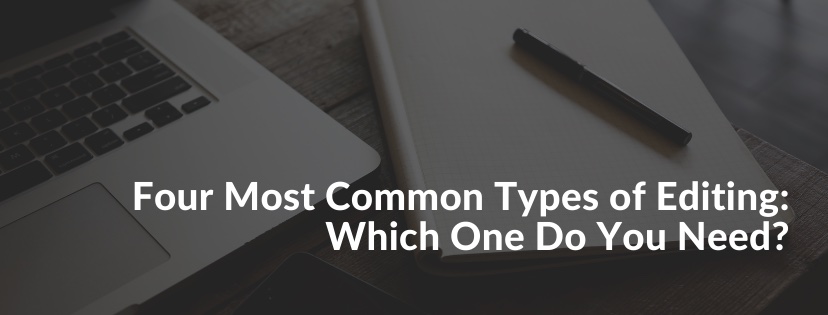Editing and proofreading are indispensable parts of the writing process. Therefore, if you are thinking of either entering this field to make a career out of it or simply looking for some services for your written project, you need to learn about the basics. For starters, several researchers and students tend to use these two terms interchangeably. Editing and proofreading are two entirely different things, albeit they are interconnected. This article will focus on different types of editing and give some basics.

Editing and proofreading are indispensable parts of the writing process. Therefore, if you are thinking of either entering this field to make a career out of it or simply looking for some services for your written project, you need to learn about the basics. For starters, several researchers and students tend to use these two terms interchangeably. However, that is not the case.
Editing and proofreading are two entirely different things, albeit they are interconnected. Not only are they different, but there are also various types of editing and proofreading. In this article, we will focus on those different types that are out there and take a thorough look.
Editing and proofreading are, as mentioned earlier, a part of the writing process. When you complete writing your piece, your editor picks it up to edit it. Once that is over, and all the necessary changes are made, then your proofreader takes control. They go through your manuscript, make the necessary edits, and pass it over to you for publication.
Therefore, to break it down, editing is the large-scale modification of your piece to enhance clarity, relevancy, and the overall quality of your work. It takes a look at the following:
The content
How relevant it is
Is it well-structured?
How clear and precise it is for the readers to understand
Helps correct formatting issues
Checks for citation errors
These are the few things that editing takes care of. Editing helps to improve the quality of your work so that it is well-received by the readers. Proofreading, on the other hand, is like the final touches that you give to your piece. Here is what it does:
Helps correct minor inconsistencies and errors
Fixes overlooked grammatical errors
All in all, proofreading helps your work to look more professional and perfect. It ensures that your work does not have any minor errors that otherwise would go unnoticed.
All these aforementioned factors boost the importance of editing and proofreading. While some scholars or students may think that their work does not need either of these, professionals will always have their work edited and proofread before submitting or publishing. This is precisely the reason why people approach professionals for getting editing and proofreading services.
Now that you understand what editing and proofreading are and why they are so important, we will now move on to the various types. Just how editing and proofreading are two different things, similarly, they also vary in types.
This information is especially useful for those who want to make a career in this line. Therefore, understanding the different types of editing and proofreading will give you a good insight into which type you may want to pursue. Let us take a look.
Copy editing is more detail-oriented and thus focuses on minute details of the work. Copy editors look for:
Correct spellings
Proper usage of grammar
Consistent usage of writing style
Inconsistencies in the content or writing manner
Copy editing and line editing are somewhat similar in their manner. However, copy editing revolves around technicalities whereas, line editing focuses more on the creative aspects of expressions.
Line editing is just as the name sounds — editing the document line by line. Here, more focus is put on the meaning and clarity of the paragraphs rather than the document as a whole. The editor looks for unclear sentences, incorrect use of words, fact accuracy, inconsistent approach or tone, and overall presentation. The editor’s main objective here is to refine the content till it is of greater quality.
Developmental editing is mainly used for long text such as book manuscripts. Here, the editor looks at the work as a whole, which includes structure, content, and construction. In developmental editing, the editor works with the author or writer from the very beginning of the project. Even then, many revisions are made throughout the writing process and during the making of drafts.
Yes, proofreading, too, is considered a type of editing. Though it is a different step altogether, proofreading is interlinked with editing. It is the last type of editing that any document goes through before it is released, submitted, or published.
Proofreading, in general, is the process of taking a final look at the work to see if there are any typos, minor errors, spelling mistakes, and such. Proofreaders give the final nod of approval whether a document is properly edited or not.
However, a proofreader may also make editing suggestions to improve clarity. If, however, they notice too many inconsistencies or issues with the work, they might ask for re-editing.
Best Edit & Proof expert editors and proofreaders focus on offering manuscripts with proper tone, content, and style of academic writing, and also provide an upscale editing and proofreading service for you. If you consider our pieces of advice, you will witness a notable increase in the chance for your research manuscript to be accepted by the publishers. We work together as an academic writing style guide by bestowing subject-area editing and proofreading around several categorized writing styles. With the group of our expert editors, you will always find us all set to help you identify the tone and style that your manuscript needs to get a nod from the publishers.
You can also avail of our assistance if you are looking for editors who can format your manuscript, or just check on the particular styles for the formatting task as per the guidelines provided to you, e.g., APA, MLA, or Chicago/Turabian styles. Best Edit & Proof editors and proofreaders provide all sorts of academic writing help, including editing and proofreading services, using our user-friendly website, and a streamlined ordering process.
Visit our order page if you want our subject-area editors or language experts to work on your manuscript to improve its tone and style and give it a perfect academic tone and style through proper editing and proofreading. The process of submitting a paper is very easy and quick. Click here to find out how it works.
Our pricing is based on the type of service you avail of here, be it editing or proofreading. We charge on the basis of the word count of your manuscript that you submit for editing and proofreading and the turnaround time it takes to get it done. If you want to get an instant price quote for your project, copy and paste your document or enter your word count into our pricing calculator.
Contact us to get support with academic editing and proofreading. We have a 24/7 active live chat mode to offer you direct support along with qualified editors to refine and furbish your manuscript.
Follow us on Twitter, LinkedIn, Facebook, Instagram, and Medium.
For more posts, click here.
This article focuses on the different types of editing. To give you an opportunity to practice proofreading, we have left a few spelling, punctuation, or grammatical errors in the text. See if you can spot them! If you spot the errors correctly, you will be entitled to a 10% discount.

In terms of academic achievement, editing is one of the most important requirements. Therefore, taking full advantage of this service will help your project reach its maximum potential and improve the quality of the paper. It also increases the chances that your article will be accepted for publication in academic peer-reviewed journals.
Continue Reading
Many researchers get confused about what can or cannot be labeled as editing. There are still people who tend to confuse proofreading with editing as the same thing. However, that is not the case. Proofreading is a type of editing and falls under the process of writing. In this article, we will take the liberty to go through some of the most basic and most important types of editing that you must know of.
Continue Reading
Looking at it from an objective viewpoint, editing as a process garners much flak from academics. Scholars either schedule it for the night before the deadline or display their bravado by entirely skipping it. Editing is, by all means, a resource-intensive and mentally taxing task. But it is also a crucial step in the writing process that enhances a document's overall legibility.
Continue Reading